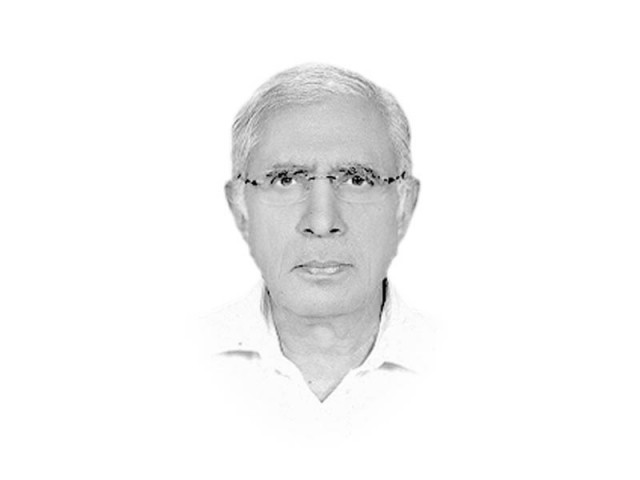What does it take to make a social state?
Rich countries tend to use the less developed ones as a lab of experimentation

The writer served as Executive Editor of The Express Tribune from 2009 to 2014
According to Thomas Piketty (Capital in the Twenty-First Century — Pp 491), the development of a fiscal and social state is intimately related to the process of state-building as such, “Hence the history of economic development is also a matter of political and cultural development, and each country must find its distinctive path and cope with its own internal divisions.” So, it is imperative that Pakistan should try to find its own distinctive path to progress. But no matter how distinctive the path is, unless both the national incomes and tax collections rise to a reasonable level, the economy of developing countries like Pakistan would either continue to remain dole-dependent or trapped into a stagnant mode going south.
Piketty’s research states that when the four rich countries of the world (Sweden, France, Britain and the US) collected less than 10 per cent from the national income by way of taxes they could afford to fulfil only their central ‘reglian’ functions (police, courts, army, foreign affairs, general administration, etc.) but not much more. This was the situation in these four countries during the 19th century up to the First World War. Between 1920 and 1980, the share of national income that the wealthy countries chose to devote to social spending increased considerably as in just half a century, the share of taxes in national income increased by a factor of at least three to four and in Nordic countries by more than five. The growing tax collection enabled the governments of these rich countries to take on ever broader social functions which now consume between a quarter and a third of national income of which one half goes to health and education, the other to replacement incomes and transfer payments. All told, the total social spending, broadly speaking, amounts to 25-35 per cent of national income. “In other words, the growth of the fiscal state over the last century basically reflects the constitution of a social state.”
In sub-Sahara and South Asia the average tax bite was slightly below 15 per cent in 1970 and early 1980 but fell to a little over 10 per cent in 1990. Piketty partly blames rich countries and international organisations for this state of affairs in poor countries. “The initial situation was not very promising. The process of decolonisation was marked by a number of chaotic episodes in the period 1950-70: wars of independence with the former colonial powers, somewhat arbitrary borders, military tensions linked to the Cold War, abortive experiments with socialism, and sometimes a little of all three. After 1980, moreover, the new ultraliberal wave emanating from the developed countries forced the poor countries to cut their public sectors and lower the priority of developing a tax system suitable to fostering economic development. Recent research has shown that the decline in government receipts in the poorest countries in 1980-1990 was largely due to a decline in customs duties which had brought in revenues equivalent to about five per cent of national income in 1970. Trade liberalisation is not necessarily a bad thing, but only if it is not peremptorily imposed, and only if lost revenue can gradually be replaced by a strong tax authority capable of collecting new taxes and other substitute sources of income. Today’s developed countries reduced their tariffs over the course of the 19th and 20th centuries at a pace they judged to be reasonable and with clear alternatives in mind. This illustrates a more general phenomenon: the tendency of the rich countries to use the less developed world as a field of experimentation, without really seeking to capitalise on the lessons of their own historical experience.
Published in The Express Tribune, July 30th, 2016.
Like Opinion & Editorial on Facebook, follow @ETOpEd on Twitter to receive all updates on all our daily pieces.















COMMENTS
Comments are moderated and generally will be posted if they are on-topic and not abusive.
For more information, please see our Comments FAQ